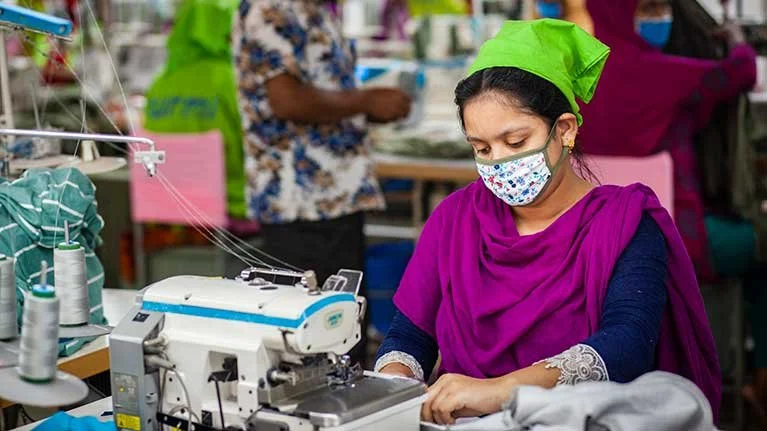Empowering Women in the Textile Industry: A Call to Action
Today marks International Women’s Day and we want to use this day to highlight the women in the supply chain of the textile industry. Because the textile industry stands as a powerful vehicle for women's empowerment, with a staggering 80% of all textile workers globally being women. This statistic, coupled with the fact that 75% of these workers are based in Asia, highlights the profound impact of the textile sector on female labour participation. However, despite their significant presence in the industry, women textile workers face numerous challenges that hinder their empowerment and well-being.
From the production of raw materials, the spinning, dying, and sewing to the final stages of packaging and transportation, women are integral to every step of the textile supply chain, either directly or indirectly. While the sewing aspect of production often gets the most attention concerning human rights violations, it's crucial to recognize the broader spectrum of challenges faced by women throughout the industry.
Challenges Faced by Women in the Textile Industry:
Poor Working Conditions: Women in the textile industry endure substandard working conditions, including discrimination, sexual violence, lack of access to proper healthcare, and excessively long work hours with minimal time for rest.
Inadequate Pay: Despite their critical role in the industry, many women textile workers do not earn living wages. Even when they receive the minimum wage mandated by national laws, it often falls short of meeting basic needs. Moreover, women are disproportionately underrepresented in management positions and ownership roles within textile companies.
Limited Voice: Women often lack the opportunity to voice their concerns or organize effectively due to barriers such as restricted access to unions and collective bargaining.
Burden of Caregiving: Balancing demanding work schedules with childcare and household responsibilities places a significant burden on women textile workers. Many must juggle these duties and sometimes being separated from their families, leading to emotional strain and feelings of guilt.
Job Insecurity: The volatile nature of the industry leaves workers vulnerable to sudden fluctuations in demand and job losses. Instances such as factory closures and order cancellations contribute to widespread uncertainty among textile workers, particularly in regions like Bangladesh, where factories experience significant disruptions.
Initiatives for Change:
Addressing these challenges requires a concerted effort from various stakeholders, including governments, fashion brands, and consumers. Here are some key initiatives to promote women's empowerment in the textile industry:
Demand Living Wages: Fashion brands must prioritize fair wages for textile workers, shifting profits from stock owners to workers to ensure sustainable livelihoods.
Ensure Decent Working Conditions: Implementation of certification programs and third-party controls can enforce and monitor compliance with safe and ethical working conditions. Including anti-corruption work where the controls it self must be guranteed not to be corrupted.
Support Unionization: Encouraging the formation of unions, with a focus on increasing women's participation in leadership roles, strengthens workers' collective bargaining power.
Provide Supportive Services: Accessible childcare facilities and other essential services can alleviate the burden on women workers, enabling them to balance work and family responsibilities more effectively.
Ensure Job Security: Contracts that guarantee a minimum level of income and future work opportunities provide stability and security for textile workers amidst industry fluctuations.
How Individuals Can Make a Difference:
Individuals can contribute to women's empowerment in the textile industry through various actions:
Choose Ethical Products: Prioritize purchasing from women's cooperatives and products certified as fair trade to support sustainable and equitable practices.
Advocate for Change: Participate in campaigns like "Who Made My Clothes" by Fashion Revolution to demand living wages and workers' rights from large-scale fashion companies.
Vote Responsibly: Support politicians and policies that prioritize human rights and labour rights within the textile supply chain.
Amplify Voices: Share the stories and experiences of women textile workers through social media and documentaries to raise awareness and advocate for change.
Avoid Femwashing: Be critical of initiatives that claim to promote women's empowerment without a genuine commitment to improving working conditions and supporting the workers who made the product.
Empowering women in the textile industry is not only a matter of gender equality but also a crucial step towards creating a more just and sustainable development. By addressing the systemic challenges faced by women workers and advocating for their rights, we can create a future where all individuals have the opportunity to thrive and contribute to positive change.




